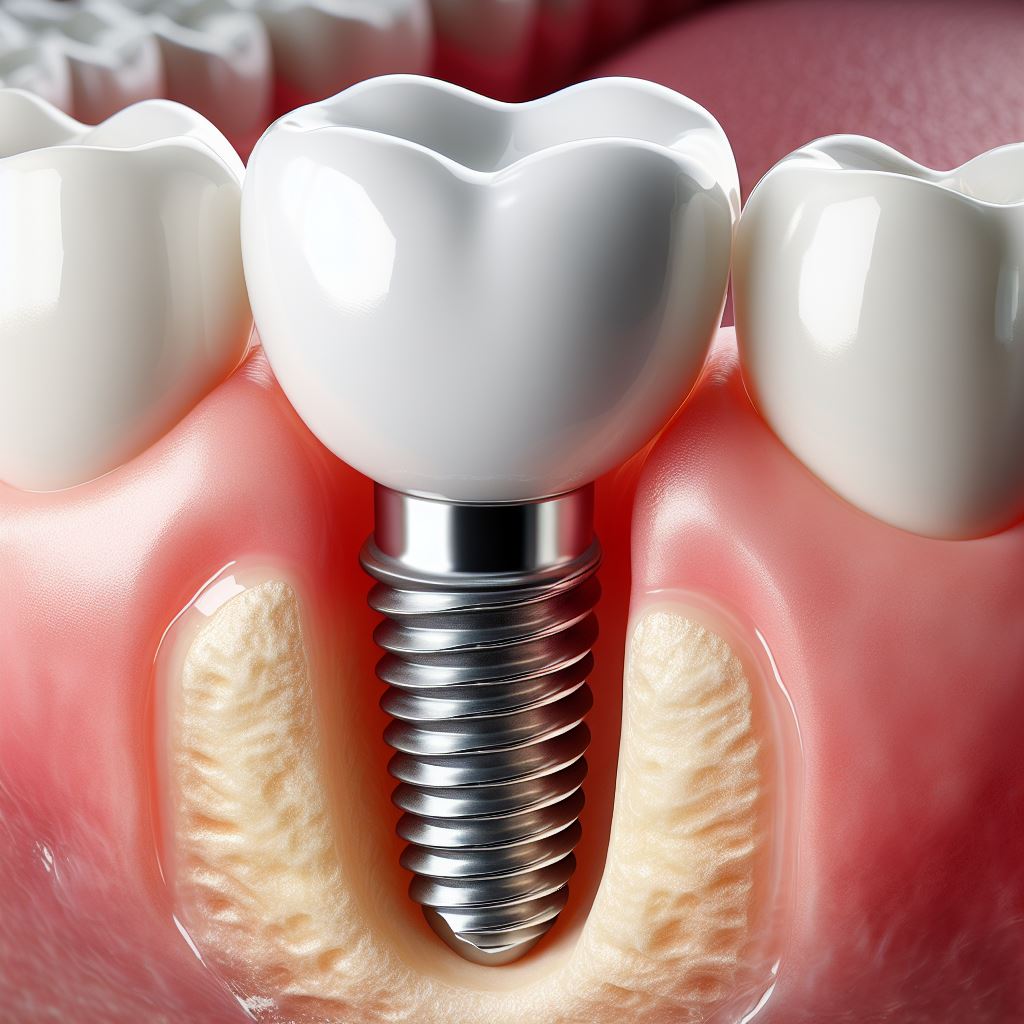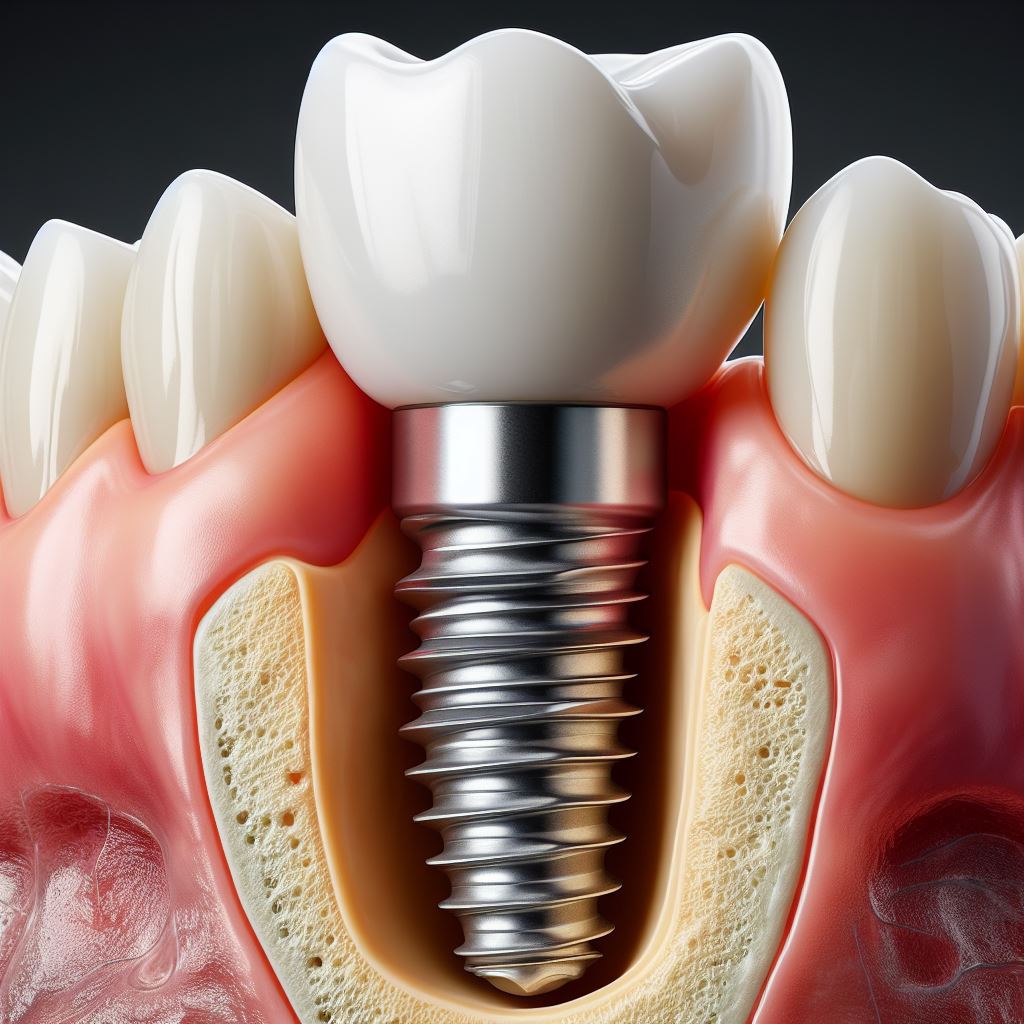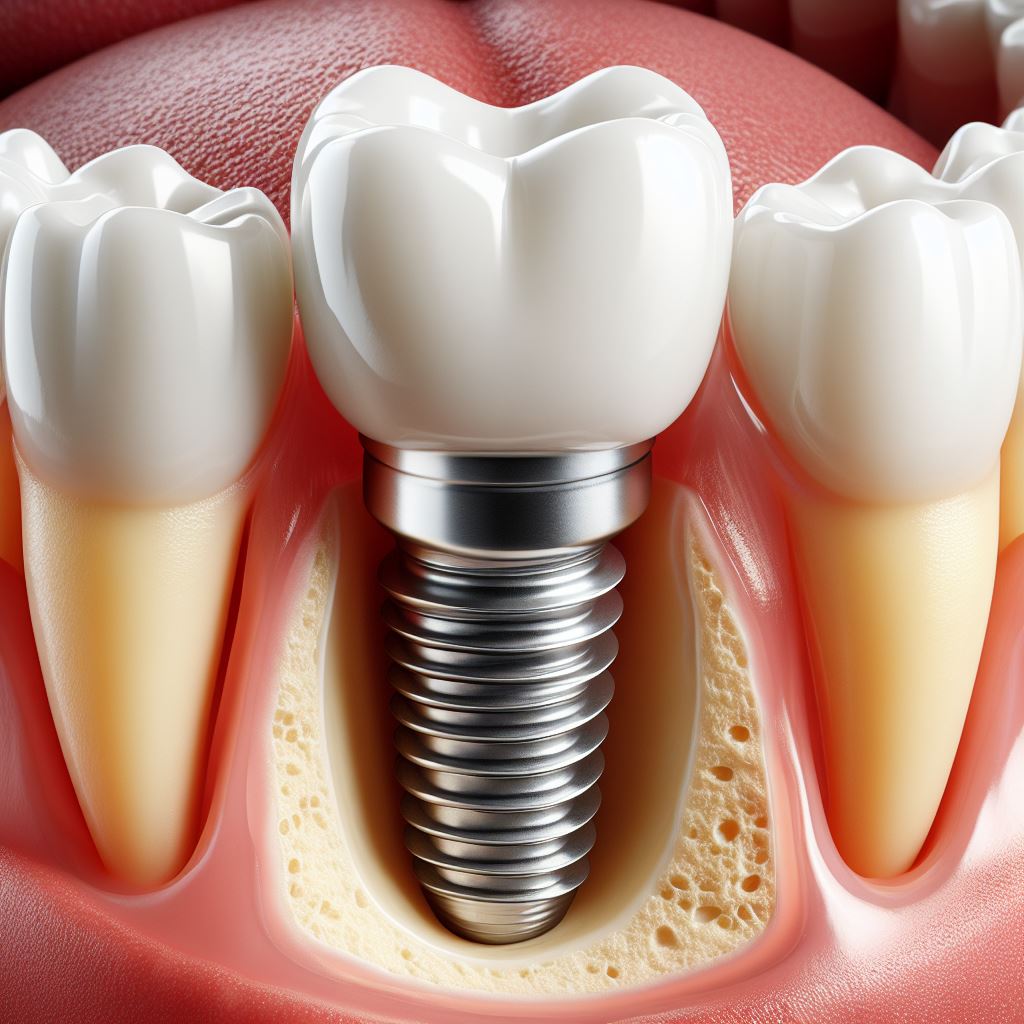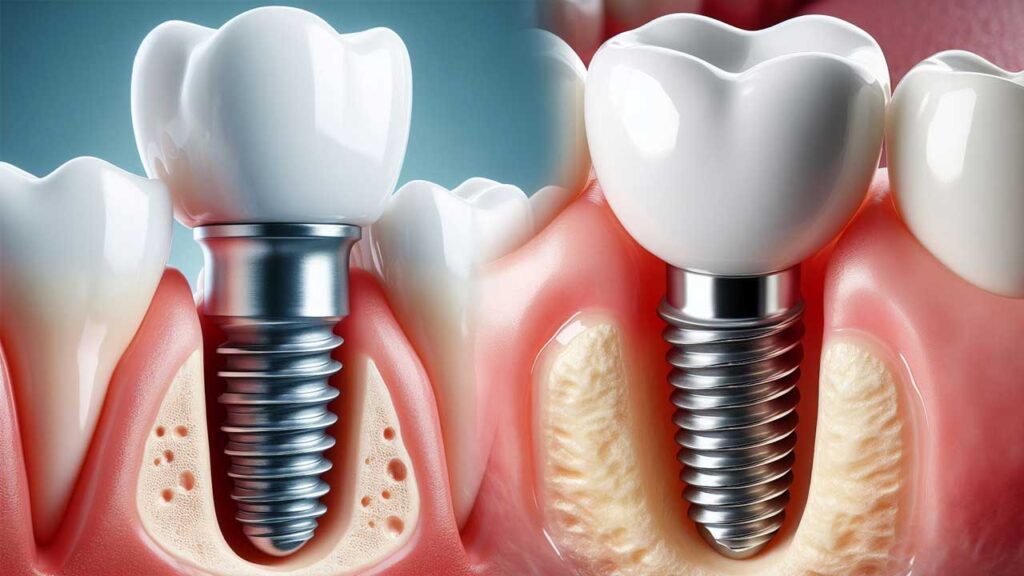Dental implants have become an increasingly popular solution for individuals seeking to replace missing teeth. They offer a natural-looking and durable alternative to traditional dentures, providing patients with a restored smile and improved oral function. However, many people are unsure about what dental implants look like and how they work. In this article, we will explore the appearance of dental implants, their benefits, and the process of getting them.

What Do Dental Implants Look Like?
Dental implants are made up of three main components: the implant post, the abutment, and the crown. The implant post is a screw-like structure that is surgically placed into the jawbone, acting as a replacement for the tooth root. The abutment is a connector piece that attaches the implant post to the crown, which is the visible part of the implant that resembles a natural tooth.

The crown is custom-made to match the shape, size, and color of the patient’s surrounding teeth, resulting in a natural and aesthetically pleasing appearance. Dental implants are designed to blend seamlessly with the patient’s natural teeth, making them virtually indistinguishable from the real thing.
Benefits of Dental Implants
Dental implants offer several benefits over traditional dentures and bridges. They are a long-lasting solution, with a success rate of over 95% and can last for many years with proper care. Dental implants also help to preserve jawbone density, preventing the bone loss that can occur with missing teeth. This not only maintains the natural appearance of the face but also prevents further dental health issues.
Additionally, dental implants provide improved functionality, allowing patients to eat, speak, and chew with confidence. They also do not require any special maintenance, other than regular brushing and flossing, making them a convenient and practical solution.
The Process of Getting Dental Implants
The process of getting dental implants typically involves several appointments over the course of several months. During the first appointment, the dentist will assess the patient’s oral health and determine if dental implants are the right solution. If the patient is a good candidate, the implant post will be surgically placed into the jawbone.
After the implant post has been placed, the patient will need to wait several months for the jawbone to heal and fuse with the implant post. This process, known as Osseo integration, creates a strong and stable foundation for the abutment and crown.

Once the implant post has fully healed, the abutment will be attached, and the crown will be placed on top. The crown is custom-made to match the patient’s natural teeth, resulting in a natural and aesthetically pleasing appearance.
Dental implants are a popular and effective solution for individuals seeking to replace missing teeth. They offer a natural-looking and durable alternative to traditional dentures, providing patients with a restored smile and improved oral function. With proper care, dental implants can last for many years, making them a long-lasting and practical solution.
If you are considering dental implants, it is important to consult with a qualified dentist who has experience in implant dentistry. They will be able to assess your oral health and determine if dental implants are the right solution for you. With the right care and maintenance, dental implants can provide you with a beautiful and functional smile for years to come.
FAQs
How long do dental implants last?
With proper care, dental implants can last for many years, making them a long-lasting and practical solution.
Do dental implants require special maintenance?
No, dental implants do not require any special maintenance, other than regular brushing and flossing.
Can dental implants be used for multiple missing teeth?
Yes, dental implants can be used to replace multiple missing teeth, either individually or as part of a dental bridge or denture.
Is the process of getting dental implants painful?
The process of getting dental implants is typically performed under local anesthesia, and most patients report minimal discomfort during and after the procedure.
Can anyone get dental implants?
Not everyone is a candidate for dental implants. Factors such as oral health, jawbone density, and overall health will be taken into consideration before determining if dental implants are the right solution for you.

